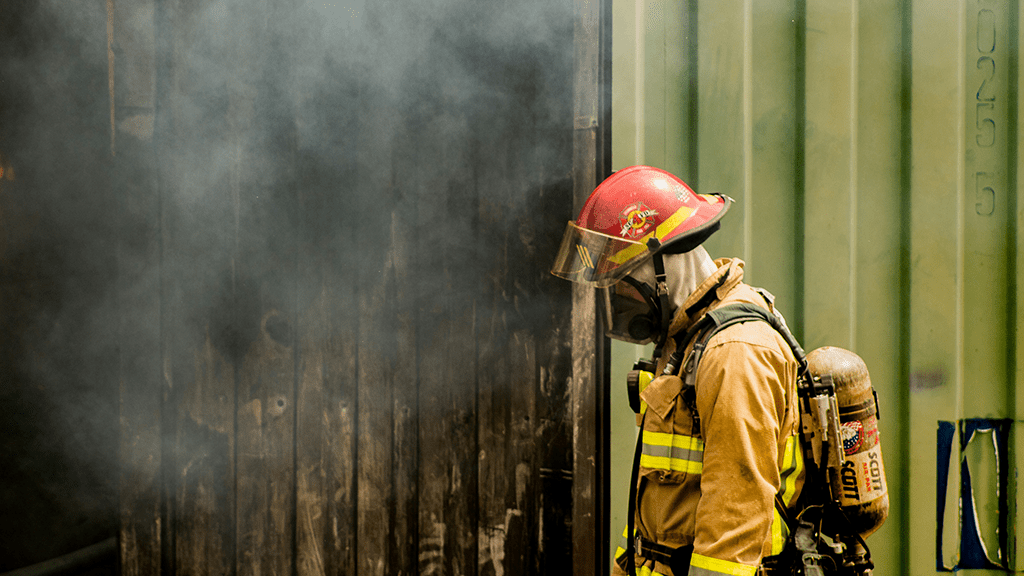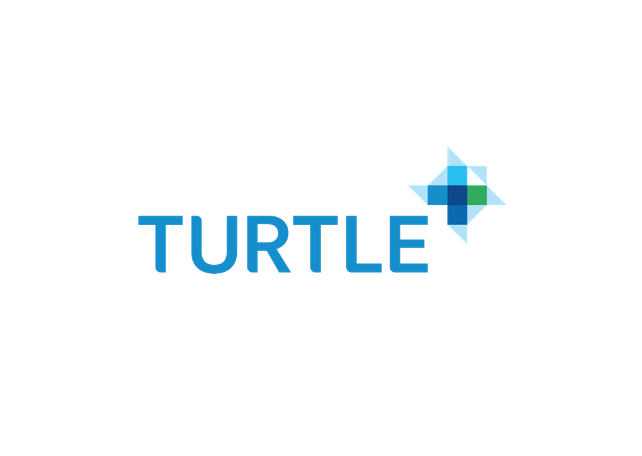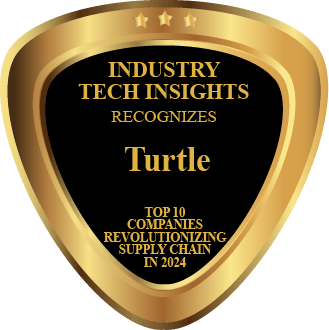
- March 5, 2026 1:41 pm
- California

A large-scale methanol supplier producing a clean-burning, cost-competitive fuel alternative was looking to expand their world-class facilities and continue to support global decarbonization efforts amidst the global COVID-19 pandemic.
Turtle, renowned for its expertise in comprehensive material management, was selected to mitigate the complex supply chain and logistical challenges inherent in this large-scale project.
Driven by the COVID-19 pandemic, the supply chain crisis led to constant price escalations and significantly extended lead times – materials had to be procured as many as four times earlier than normal!
Weather-related issues further complicated the project in Geismar, Louisiana, as the area was struck by two major storms, which temporarily halted progress and devastated local communities.
By leveraging its extensive network and strategic approach, Turtle played a crucial role in ensuring the timely and efficient delivery of materials needed for the construction and operation of the methanol facility. Key solutions included:
Turtle’s ability to manage numerous moving parts and maintain efficiency under challenging conditions sets us apart, with solutions including:
By leveraging its extensive network and strategic approach, Turtle played a crucial role in ensuring the timely and efficient delivery of materials needed for the construction and operation of the world-class methanol production facility, doing our part to support alternative fuel production and decarbonization efforts to advance a more prosperous future for people and the planet.
Founded in 1923, Turtle is celebrating 100 years of market experience and ranks among the top 20 electrical distribution companies in the U.S. It is a fourth-generation, independent, certified woman-owned business servicing the industrial, construction, commercial, electrical contracting, export, and utility markets. With sustainability as a core goal, it has four key offerings: electrical distribution, integrated supply, infrastructure modernization, and technology services.
Jayne Millard, Co-CEO and Executive Chairman of the Board is the third generation of women to lead Turtle, a 100-year-old, family- and woman-owned enterprise co-founded by her great-grandfather in 1923. Growing up in the business, Millard held positions of increasing responsibility before being named CEO in 2010 and Executive Chairman in 2016. Under her leadership, the company has experienced explosive growth by continuing her family’s legacy of relentlessly pursuing innovation and excellence.
Millard created the company’s new mission for the next century to inspire and build sustainable solutions. She is widely recognized for creating opportunities for her customers and employees. Most recently, Millard was inducted into the Women’s Business Enterprise Hall of Fame (2021), honored with the Modern Distribution Management Women in Distribution Award (2021), and bestowed the National Association of Electrical Distributors Women in Industry Trailblazer Award (2020).
As evidence of the company’s commitment to its employees and collaborative culture, Turtle received a 2023 Best Places to Work Award in New Jersey by NJ BIZ for the third time in four years. Additionally, under Millard’s guidance, the Turtle independent Board of Directors was recognized for excellence in governance with a 2023 Private Company Board of the Year Award from the New Jersey chapter of the National Association of Corporate Directors.
Luis Valls, Co-CEO and President of the Electrical Division, was named President of Turtle’s Electrical Division in 2018. Previously, he served for ten years as Vice President and National Manager of the company’s Power Distribution & Automation Solutions Department. Under his direction, Valls championed enhanced capabilities and built one of the nation’s strongest and most innovative teams of engineers capable of managing all aspects of power distribution and control, working on some of the industry’s most complex projects. He was named one of the Notable Hispanic Leaders 2022 by Crain’s New York Business. Prior to joining Turtle, Valls held positions at General Electric Co., Compton Instruments, and Siemens Energy & Automation. Valls was born in Camaguey, Cuba, and raised in the Canary Islands and Panama. He first came to the U.S. to attend Fairleigh Dickenson University, where he earned a degree in industrial engineering.
Turtle is celebrating 100 years of women-owned excellence by doubling down on its sustainability strategy.
Established in 1923 as an electrical distributor named Turtle and Hughes, Turtle has evolved into a leading distribution, logistics, and supply chain solutions powerhouse. With a holistic approach to sustainability, Turtle’s mission to ‘Rethink Energy’ and ‘Advance Tomorrow’ enables the business to offer a comprehensive suite of sustainable services and solutions to accelerate the global energy transition.
After raising funds alongside her husband, M. Berry Turtle, Ethel Turtle became the owner and operator of Turtle and Hughes after the passing of her husband and co-founder, Bill Hughes, just ten years into Turtle’s journey. A series of strong, fierce women have since led operations, including today’s co-CEO, Jayne Millard, who represents the family’s fourth generation of leadership. Jayne joins Supply Chain World alongside her daughter, Beatrice Clark, who joined Turtle as Director of Sustainability and Social Impact just under one year ago.
“Turtle began as an electrical distributor, delivering equipment that served the nascent power industry of the 1920s,” Jayne begins. “World War II took us into manufacturing and automation, and the Industrial Revolution brought further transformation for us, as we expanded our footprint to service the oil and gas refineries surrounding New York and New Jersey.
“When my parents came onboard in the 1960s, they steered the business further into automation, but also diversified into construction, power distribution, and the global oil and gas economy. We’ve since sustained a legacy of agility, innovating to meet customers’ needs wherever possible. In the 1990s, Turtle acquired several industrial distribution businesses which evolved into our Integrated Supply division.”
Continuous evolution
Turtle’s portfolio of integrated supply chain solutions includes MRO procurement, inventory optimization, e-procurement, storeroom design, data enrichment, and sustainable alternatives. “First and foremost, our solutions offer consolidation of spend, but also focus on cost savings, driving efficiency, and building a procurement data lake,” Jayne elaborates. “Such data enables exciting innovations, particularly as we continue to explore AI, predictive analytics, automated supplier selection, dynamic pricing algorithms, and real-time insights.
“We work collaboratively with engineers to develop a strategy for each plant, bringing collaboration, efficiency, and strategic insight to our customers’ supply chains. One of our customers who has been with us for over 16 years, for instance, has achieved over $85 million in cost savings, and now we know their procurement practices as well as they do! That’s what our customers are looking for – a partnership with mutual trust. As supply chains become more complex, our clients are looking for a thought leader who can manage the myriad of risks and challenges that the global economy presents today.
“Turtle has evolved even further today,” she continues. “In 2023, we celebrated our 100th anniversary. With over 1000 employees and $1 billion in revenue, the family decided to get together and evaluate our mission and purpose for being stewards of this great company. We’ve always been passionate about people, purpose, and the planet and how the industrial sector can be part of the solution to help meet the global carbon reduction goals.
“Our sustainability mission is an exciting, strategic differentiator, as we’re collaborating with customers to help propel their sustainability journey. We’ve also started an incubator and a venture capital arm, where we’re committed to deploying capital to invest in new technologies that are advancing the race to Net-Zero, such as greenhouse gas capture, storage, and sequestration technology, high-efficiency renewable energies, and AI blockchain technologies.”
After Jayne’s introduction to Turtle’s commitment to sustainability, we’re keen to hear from Beatrice about how she is implementing such practices. “Our journey began over ten years ago by reporting to EcoVadis and later to the Carbon Disclosure Project in response to customer requests,” Beatrice narrates. “While we have some customers leading the charge on sustainable business, others are just now awakening to the idea that sustainable solutions not only reduce emissions and accelerate energy transition but also generate cost savings and enhance efficiency.
“Sustainability has always been a huge passion of mine, and I decided to return to school and dig into this specialty,” she reflects. “Surrounded by some brilliant minds throughout my studies, the curriculum opened my eyes to Turtle’s unique position to enable and accelerate sustainable progress and the clean energy transition.
“It’s interesting that my former film career overlaps with Turtle in some ways. For instance, I helped co-produce a small PBS documentary about energy transition that Turtle had been asked to participate in, combining my skills and passions in both areas.
“Sustainability overlays every industry regardless of business function, and it’s inspiring to see our customers engaging with such practices not only due to legislative requirements but from a commitment to social responsibility and environmental stewardship. We’re also seeing companies adopt sustainability as a core driver of innovation, finding ways to streamline processes, exploring innovative technologies, and cutting inefficiencies.
“While sustainability poses both challenges and growth opportunities, as a distributor, Turtle occupies an interesting position in the supply chain. We are pursuing well-documented strategies for decarbonizing facilities and fleets, but where we can make the biggest difference is with our partners, some of whom are large manufacturers looking for assistance on their decarbonization journeys.
“Progress doesn’t happen in a vacuum; we need to foster a culture of knowledge sharing to advance sustainability. We’re increasingly seeing an openness and willingness to work together across the industry, which is resulting in more transparency in the supply chain, specifically around sourcing and product life cycles.
“It all starts with measurement,” she suggests. “For many of our customers, Scope 3 emissions are the biggest challenge. We own and manage huge amounts of procurement and supply chain data and are exploring new methods and technologies to track and reduce emissions.”
Supporting a sustainable future
Turning to Turtle’s current operations, Jayne explains: “We’ve launched an interesting suite of solutions called Turtle TMRW Mapping, where we engage in strategic discussions with our customers and partners. After identifying their long-term strategic goals, we establish practical steps to achieve their core objectives. With our incredible enterprise partners, we can apply AI solutions and develop our processes to manage customer data.
“As I mentioned, we’ve also established our incubator, which is designed to work around internal roadblocks and bring teams together based on their talents and commitments. Since starting this business accelerator, we’ve built an entire electrification division for EVs including networks of chargers, software, and energy management consulting services. Based on the venture’s commercial success thus far, it is clear this form of disruptive innovation is needed. From investment in AI solutions for measuring carbon reduction to fireproof lithium-ion battery technologies, the incubator’s potential to accelerate the commercialization of green tech is promising. Turtle sits at the crossroads of these innovations and the local markets that are looking for solutions to today’s electrification challenges.”
As our conversation draws to a close, Jayne reflects on Turtle’s legacy of female leadership and shares her vision for the coming generations. “We’ve worked hard to create a One Turtle ethos that embraces change and innovation,” Jayne says. “My grandmother Ethel set the tone for the culture, having become a business owner only a few years after women were legally allowed to own property in the US. She believed that when you bring ordinary people together, you can do extraordinary things, and I’ve carried that belief with me throughout my career.”
Considering the future of Turtle, Jayne continues: “We’re constantly looking to enhance our supply chain’s resilience; we’ve just joined the Sustainable Supply Chain Alliance and we’re about to undergo a double materiality assessment to look at the entirety of our supply chain risks. We are proud to boast several decades-old partnerships with our suppliers that allow us to respond to demand, preferably in a climate-positive way.
“Sustainability continues to be our biggest priority and will dominate our operations in all areas from distribution, to integrated supply solutions, and to grid modernization,” she concludes. “After 100 years of growth, we’re excited to continue to reinforce the power of diversity and bring people along on our sustainability journey, headed up by Beatrice, the family’s fifth generation of leadership. Our commitment to accelerating this country’s electrification journey has just begun.”

" After 100 years of growth, we’re excited to continue to reinforce the power of diversity and bring people along on our sustainability journey, headed up by Beatrice, the family’s fifth generation of leadership. Our commitment to accelerating this country’s electrification journey has just begun. "
Jayne Millard
Co-CEO & Executive Chairman of the board